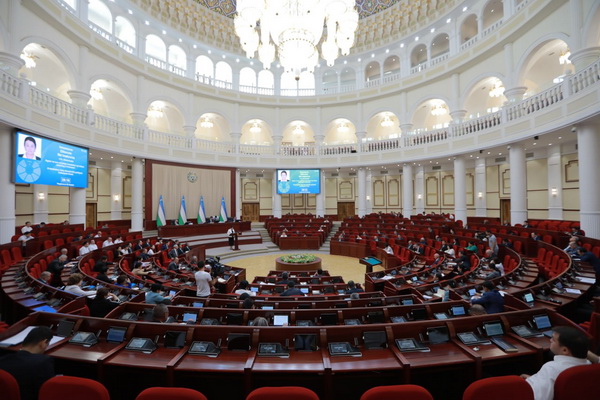
Uzbek Parliament’s Lower House Approves Urban Renovation Bill in First Reading
Uzbek Parliament’s Lower House Approves Urban Renovation Bill in First Reading
Tashkent, Uzbekistan (UzDaily.com) — The Legislative Chamber of the Oliy Majlis has approved in its first reading the draft law “On Urban Renovation,” which is expected to fundamentally transform the approach to rebuilding dilapidated housing and shaping the modern appearance of cities.
The document is aimed at the comprehensive improvement of territories, taking into account architectural, social, environmental, and economic aspects. It provides for the demolition of hazardous and uninhabitable buildings, followed by the construction of modern and energy‑efficient facilities.
A key principle of the program will be voluntary participation — coercion is strictly excluded. Each project will only be implemented with the notarized consent of all homeowners. The draft law also guarantees the inviolability of private property: deprivation of housing will be possible solely by court decision, and any disputes will be resolved in favor of the owners.
Participants in the program will be offered three forms of compensation: provision of new housing on the renovated site, allocation of real estate in another district, or a cash payment at market value. The new housing must be no smaller in size and fully ready for occupancy.
Particular emphasis is placed on transparency. All renovation projects will undergo public discussion via a dedicated electronic platform, media websites, and other open channels.
The need for this bill stems from the country’s growing demand for housing. Experts estimate that Uzbekistan requires around 145,000 new homes annually, whereas from 2019 to 2023 an average of only 60,000 were built each year. Last year, the figure reached 100,000, but further growth requires additional land resources, making the renovation program especially relevant.
The parliamentary debate on the bill was lively, with deputies raising questions about residents’ guarantees and compensation mechanisms. Nonetheless, the draft law secured majority support and was passed in the first reading. All proposals voiced during the discussion will be taken into account in preparation for the second reading.